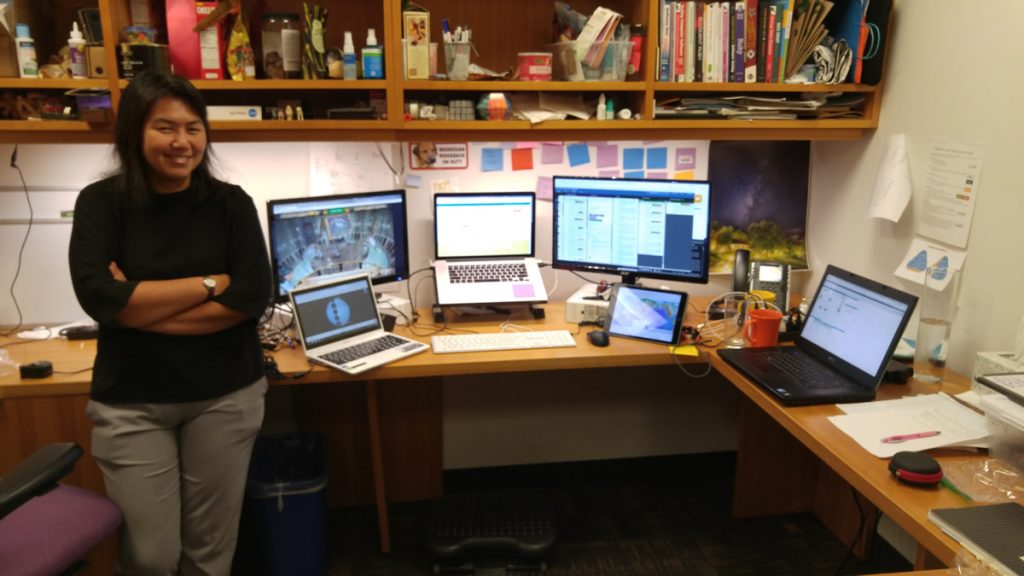As a software tester at the Concord Consortium, Evangeline Ireland sleuths for bugs in our projects. She ferrets out the source of known glitches (why does hitting the spacebar repeatedly create an error in Geniventure?) and discovers problems before software is released.
“If it’s going to be used by teachers without the researchers there to guide them, then at some point I need to try to break it first,” she explains.

In our Emeryville, California, office, she is surrounded by an orderly jungle of equipment: probes and sensors, MacBooks, Chromebooks, Windows machines, iPads, and more in different screen and keyboard configurations using various operating systems. Within this habitat, she creates just the right environment to test each problem.
“I narrow down the list of possibilities as much as possible,” she explains. “Where is the bug happening? How is it happening? What are the conditions?” Most of her time is spent thinking up and designing the right environment. In comparison, the actual testing takes a fraction of the time.
Sometimes our software developers try to give her a heads up about where a problem is occurring, but, she says, “I don’t really want them explaining the code base to me because it doesn’t allow me to think out of the box.” To Evangeline, what seems like it might be a monotonous task becomes a creative endeavor. She imagines how different users utilize the software . . . and then she inhabits them, so to speak. She utilizes the software in the way a teacher who is new to technology might, or the student hacker, or the person who just wants to break something. “We had a student who found the script for a Star Wars movie online and they copied and pasted it as an answer to one of the questions in our STEM Resource Finder,” she explains, “which immediately broke it because it was so large.” She sounds impressed and annoyed at the same time.
Evangeline understands a certain type of student who likes to push the boundaries. After all, ever since she was a child she’s liked taking things apart. She’s fascinated with videos of unusual manufacturing processes—how Krispy Kreme donuts are made, how Crayola creates crayons, French horn construction. So it’s no surprise she graduated from the University of California Berkeley in mechanical engineering. “Mechanical systems have always been really fascinating to me,” she says. She compares it to watching a choreographed dance.
But even though she and her husband are both engineers, and they took their two daughters to innumerable science museums and required them to learn Java, her kids, for now, are not interested in being engineers. “But it’s ok,” Evangeline affectionately adds, “we figure if at any point they want to pick it up again, those things don’t really go away.”
Maybe it’s just a bug that will get fixed eventually.